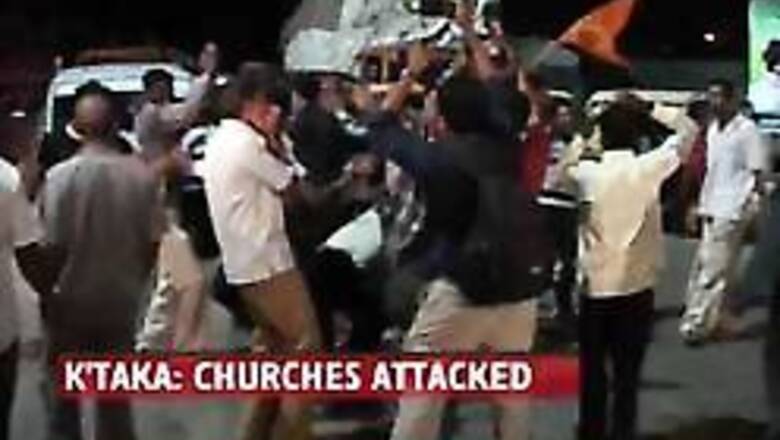
views
Washington: The United States Commission on International Religious Freedom (USCIRF) has urged President George Bush to raise concerns about religious freedom in India with Prime Minister Manmohan Singh during their Sep 25 meeting here.
"The US government can and should urge the Indian central government to make more vigorous and effective efforts to stem violence against religious minority communities," Commission Chair Felice D Gaer said in a letter to Bush released on Monday.
Current violence in Orissa represents the second major outbreak of violence against religious communities in that state in the last 10 months, she said.
Created by the International Religious Freedom Act of 1998, USCIRF is an independent, bipartisan federal agency advising the administration and Congress.
The letter urged Bush to ask Manmohan Singh "to ensure the immediate security of Indian citizens - security that is undermined by recurrent attacks on religious minorities and communities".
"If India is to exercise global leadership as the largest and perhaps most pluralistic democracy in the world, Prime Minister Singh should demonstrate his government's commitment to uphold the basic human rights obligations to which it has agreed, including the protection of religious minorities," Gaer said.
Suggesting that the "Indian government's response to the egregious violence in Orissa remains inadequate", USCIRF said in its view, "the severity and extent of these attacks warrant a national-level investigation and response".
The US agency expressed support for Manmohan Singh's pledge to offer urgently needed assistance packages to survivors of the communal riots in Orissa.
"However, post-riot humanitarian aid does not obscure the need for both the Orissa state and the Indian central government to take action to address persistent sectarian tensions in Orissa, and to prevent future eruptions of violence," it said.
The letter told Bush that he is "in the unique position to be able to communicate to the prime minister the urgency of employing prompt and effective preventive means to quell the ongoing communal violence, and insuring accountability of the perpetrators".
Noting that India already possesses an admirable array of mechanisms to address these ongoing human rights abuses, Gaer suggested "the independent Indian judiciary can reform its slow-moving and frequently unresponsive tendencies to hold the perpetrators of religious violence responsible".
This is particularly crucial to address the long-standing injustice endured by victims of another act of severe religious violence.
"The tentative, halted response of India's central government to the current religious violence in Orissa and the ongoing lack of justice for the victims of the Gujarat riots of 2002 enhance the uncertainty and insecurity facing minorities," the letter said.
Noting that "India has also already been the victim of so much terrorism on its soil, most recently with the bombings in Delhi last weekend, linked to Islamic extremists", Gaer said the two countries were "joined in the battle against elements of extremism originating from religious communities".
"At stake is the security and success of a multi-ethnic, multi-religious, multi-lingual society of more than a billion people that shares the democratic values of the United States and boasts the vibrant representation of all the world's major religions," she added.
Noting that in a "majority Hindu country with one of the world's largest Muslim populations, the current prime minister is Sikh and the national governing alliance is headed by a Catholic", it said: "Against this pluralistic backdrop, religious violence in Gujarat, Orissa and elsewhere are particularly unacceptable".




















Comments
0 comment